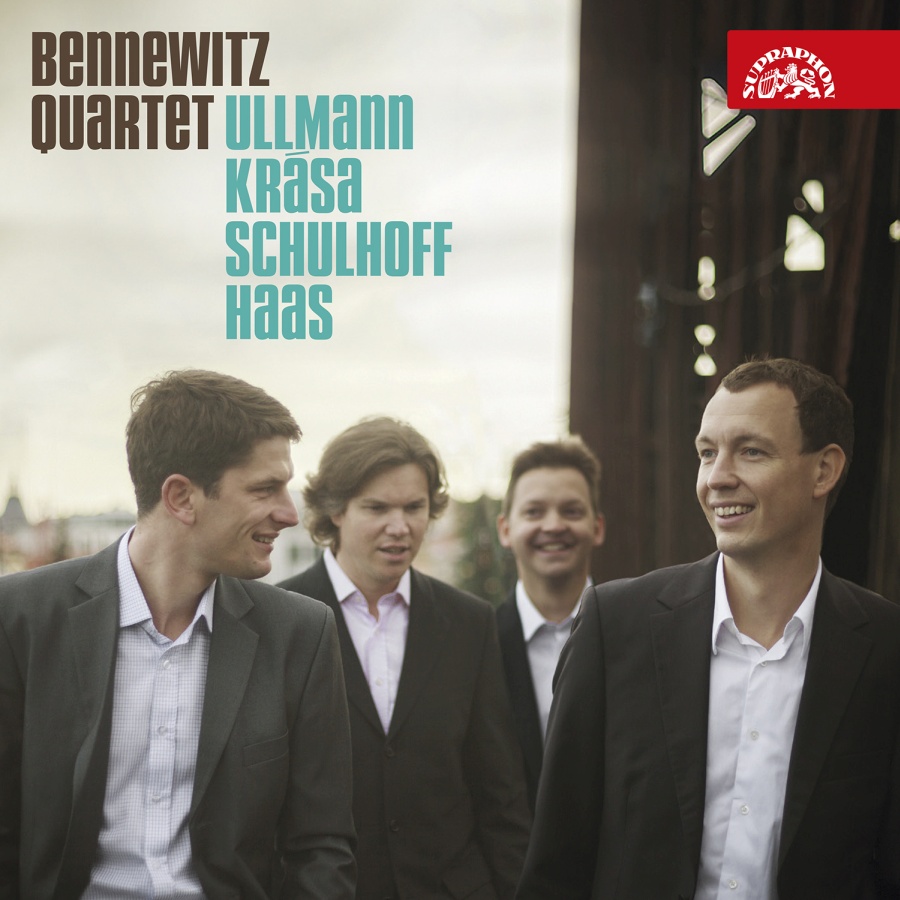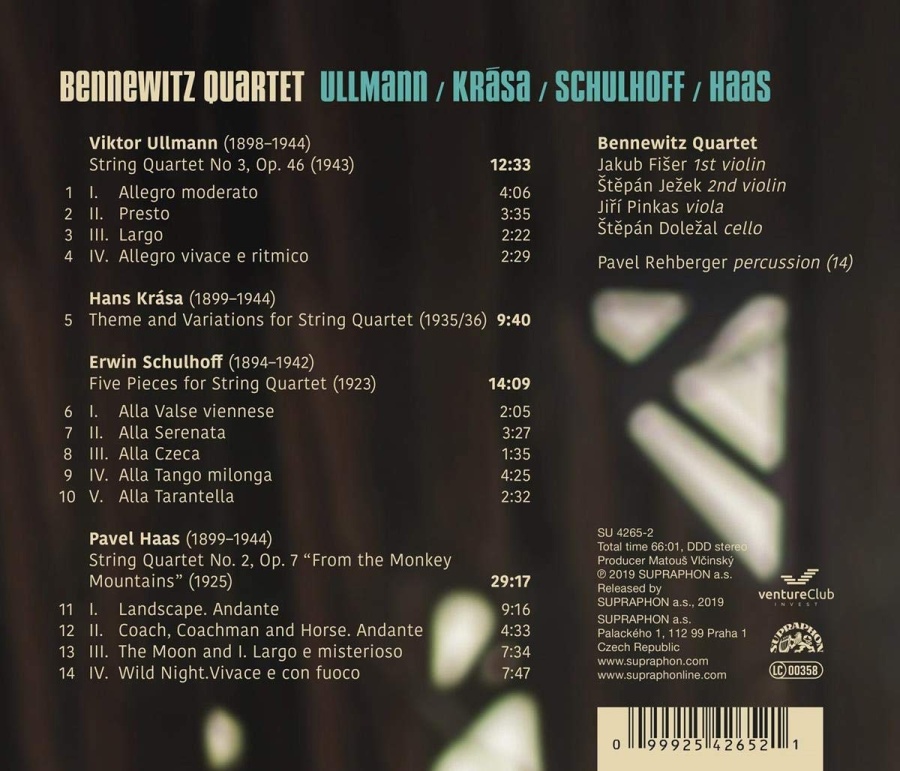
tytuł
Ullmann - Krása - Schulhoff - Haas
wykonawcy
Bennewitz Quartet
nr katalogowy
SU 4265-2
opis
Bennewitz Quartet: Jakub Fišer - first violin, Štěpán Ježek - second violin, Jiří Pinkas - viola, Štěpán Doležal - cello. Pavel Rehberger, guest - percussion (Haas) • The composers whose music is featured on the present album lived and worked in Czechoslovakia between the two world wars, and their fates were afflicted by the monstrous Nazi regime. Viktor Ullmann, who before WWII held the post of Kapellmeister at the New German Theatre, wrote Quartet No. 3 while he was detained at the Theresienstadt ghetto-camp. Hans Krása completed the Theme and Variations in 1936, yet he only saw it performed in Theresienstadt, along with his children's opera Brundibár. Erwin Schulhoff's Five Pieces reveal his zest for rhythm and dance, as well as his evidently having been inspired by the music of the Viennese salons, Italy and Spain. Pavel Haas's Quartet No. 2, dating from 1925, serves as vivid proof of the claim that the composer was the most gifted pupil of Leoš Janáček. In October 1944, Haas, Ullmann and Krása were among the thousands of Theresienstadt prisoners transported to Auschwitz, where they would be murdered in the gas chambers. • The Bennewitz Quartet launched their international career following their victories at the prestigious competition in Osaka (2005) and the Prémio Paolo Borciani in Italy (2008). Ever since they have regularly performed at the world's most prominent venues (Wigmore Hall in London, Musikverein in Vienna, Konzerthaus in Berlin, Théâtre des Champs-Elysées in Paris, concert halls in New York, Seoul, etc.) and festivals (Salzburger Festspiele, Lucerne Festival, Rheingau Musik Festival, etc.). The music of the Theresienstadt composers has found in them splendid performers. • The music of the Theresienstadt composers, taken on by the Bennewitz Quartet: a truly congenial association
nośnik
CD
gatunek
Muzyka klasyczna
producent
Supraphon
data wydania
30-09-2019
EAN / kod kreskowy
099925426521

(Produkt nie został jeszcze oceniony)
cena 75,00 zł
lubProdukt na zamówienie
Wysyłka ustalana indywidualnie.
Darmowa wysyłka dla zamówień powyżej 300 zł!
Darmowy kurier dla zamówień powyżej 500 zł!
sprawdź koszty wysyłki

















